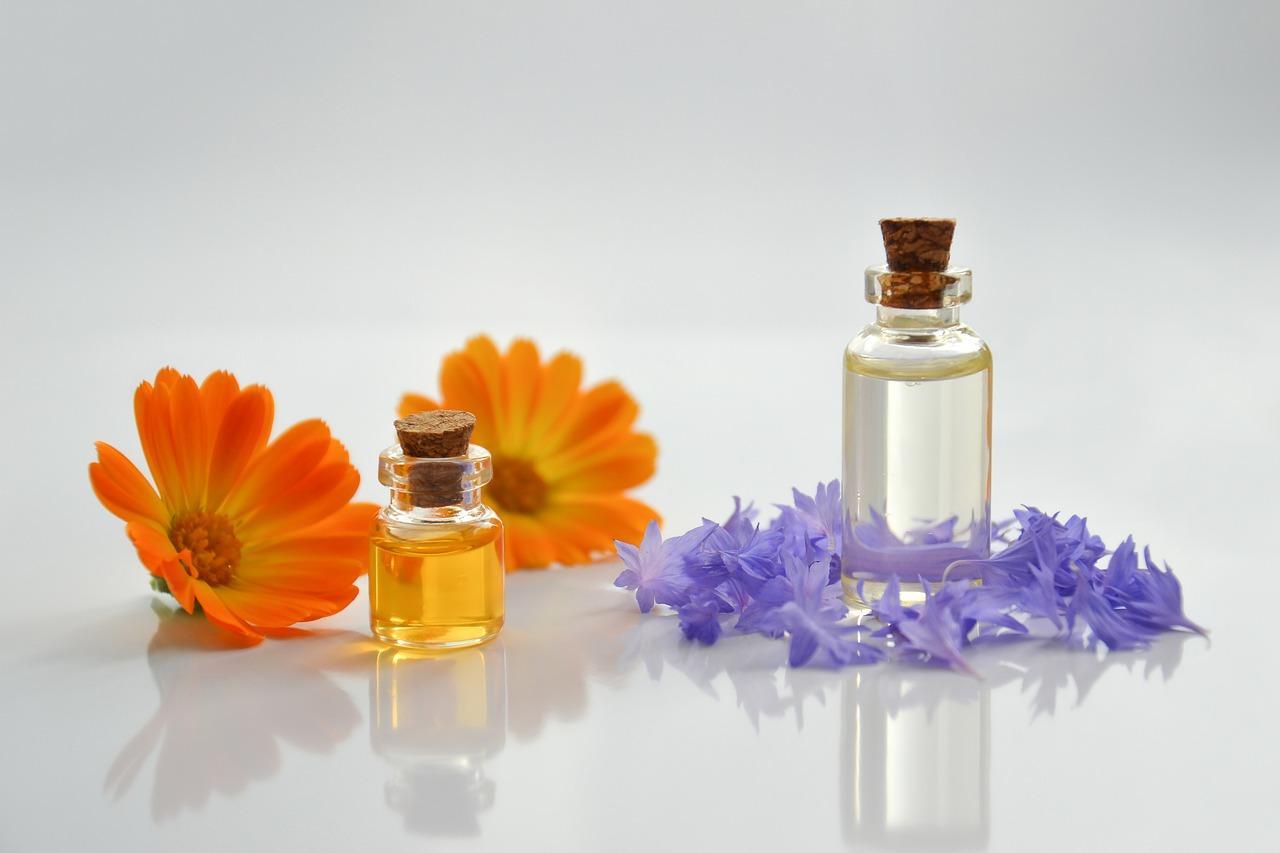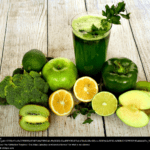 Our sense of smell allows us to experience the world around us in a unique and profound way. It is through our sense of smell that we are able to detect the fragrance of a flower, an aroma that triggers memories of our favorite childhood treat, or the distinct scent of a loved one. Our sense of smell plays a vital role in our daily lives, impacting our moods, emotions, and memories.
Our sense of smell allows us to experience the world around us in a unique and profound way. It is through our sense of smell that we are able to detect the fragrance of a flower, an aroma that triggers memories of our favorite childhood treat, or the distinct scent of a loved one. Our sense of smell plays a vital role in our daily lives, impacting our moods, emotions, and memories.
One of the most fascinating aspects of smell is its connection to memory. Our sense of smell is directly linked to the limbic system, including the amygdala and the hippocampus, areas of the brain that store memories. This makes our sense of smell one of the most powerful triggers for recalling past experiences. The scent of a familiar perfume or the aroma of a childhood dish can transport us back in time and evoke vivid memories and emotions.
Scent has played a role in health and well-being since ancient times. What we now call ‘aromatherapy’ is the practice of using essential oils and other fragrances to promote relaxation, reduce stress, and improve overall well-being. Essential oils are extracted from plants and are used to treat a variety of ailments, including headaches, anxiety, and insomnia.
The lesson materials below include articles, videos, vocabulary, and discussion materials related to the various roles that scent and smell play in our lives.
“Smell is a potent wizard that transports us across thousands of miles and all the years we have lived.” – Helen Keller
Materials:
Articles
- New Research Explains Why Scent Triggers Such Powerful Memories
- Aromatherapy Scents for Stress Relief
- This Is Why We Associate Memories So Strongly With Specific Smells
Videos
- Taste & Smell: Crash Course A&P #16
- Why Smell is More Important Than You Think | Holladay Saltz | TEDxRVA
- Scentiments and the Importance of Scent
- The Power of Smells
Discussion Questions
- What are some of your favorite and least favorite smells?
- Are you interested in perfume? If you are interested, which brand do you like?
- What’s your favorite or least favorite perfume?
- How do you feel when you smell your favorite scent?
- If you were to make a perfume, what ingredients would you put in it?
- If your friend gave you a perfume that you hated, what would you say?
- Do you associate places from your past with particular scents or smells?
- Which smells remind you of childhood?
- Do you have a strange smell that you particularly like? (e.g. paint, cement, gas station)
- What would you do if your boyfriend/girlfriend had a strange or unpleasant smell (e.g bad breath or body odor)?
- When you’ve traveled, have you noticed different smells of different places? How would you describe those smells? How do you think people would describe the ‘smell of Korea’?
- Have you ever eaten food with a strange smell?
- How would you describe your sense of smell? Is it strong or weak? Do you think you have a good sense of smell?
- How does scent affect your mood or emotions? Have you ever smelled something that instantly made you feel happy or relaxed?
- Do you have any favorite scents or fragrances? What are they, and why do you like them?
- How does scent play a role in your memories? Have you ever smelled something that reminded you of a past experience or moment in your life?
- What do you think about the use of scent in marketing or advertising? Do you think it can be effective in influencing people’s behavior or decisions?
- Have you ever used aromatherapy or essential oils for relaxation or healing purposes? Did you find it helpful?
- How important is smell in your daily life? Do you pay attention to the scents around you, or do you mostly ignore them?
- Have you ever experienced a loss of sense of smell? How did it affect your life?
- Do you think it’s possible to describe a scent using words? Try to give some examples.
- How do scents and fragrances affect the way you perceive others? Do you find that people who wear certain scents or fragrances are more attractive or appealing to you?
- Can you think of any foods that smell better (or worse) than they taste?
Vocabulary
What is the difference between ‘scent’ and ‘smell’?
‘Scent’ is a more specific and positive term used to describe pleasant aromas, while ‘smell’ is a broader and more general term used to describe any odor or aroma, both positive and negative.
General
- Aroma: 향기. A pleasant and distinctive smell. / She loved the aroma of fresh bread in the morning.
- Odor: 냄새. A smell, especially an unpleasant one. / He tried to mask the odor of smoke with perfume.
- Fragrance: 향수. A sweet or pleasant smell, often used for perfumes or colognes. / She sprayed some fragrance on her neck before going out.
- Stench: 악취. A strong and very unpleasant smell. / The stench of garbage was unbearable.
- Perfume: 향수. A liquid with a pleasant smell that people put on their skin or clothes. / He bought her a bottle of perfume for her birthday.
- Cologne: 코롱. A type of perfume that has a lower concentration of fragrant oils and is typically used by men. / He splashed some cologne on his face after shaving.
- Essential oil: 에센셜 오일. A concentrated liquid extracted from a plant that has a characteristic smell and is used for aromatherapy or cosmetics. / She added some lavender essential oil to her bath water.
- Incense: 향. A substance that is burned to produce a fragrant smoke, often used for religious or ceremonial purposes. / He lit some incense in his room to create a relaxing atmosphere.
- Sniff: 냄새를 맡다. To smell something by taking air in through the nose. / She sniffed the milk to see if it was still good.
- Stink: 악취가 나다. To have a very unpleasant smell. / Your socks stink, you should wash them.
- Reek: 악취가 나다. To have a very strong and unpleasant smell. / The dumpster reeked of rotten food.
- Bouquet: 부케. A pleasant and complex smell, especially of wine or flowers. / He admired the bouquet of the red wine before taking a sip.
- Whiff: 휘휘 날리다. A slight or brief smell that is carried by a gust of air. / She caught a whiff of his cologne as he walked past her.
- Pungent: 톡 쏘는. A strong and sharp smell that is often unpleasant or irritating. / The cheese had a pungent odor that made her eyes water.
- Musty: 곰팡내 나는. A stale and unpleasant smell that is caused by dampness, mold, or lack of fresh air. / The basement had a musty smell that indicated a leak.
- Foul: 악취가 나는. A very bad or disgusting smell that is offensive or repulsive. / The foul smell of the sewage made him gag.
- Aromatic: 향기로운. Having a pleasant and distinctive smell that is often spicy or sweet. / He added some aromatic herbs to the soup for extra flavor.
- Fragrant: 향기로운. Having a pleasant and sweet smell that is often floral or fruity. / She picked some fragrant roses from the garden.
- Savory: 짭짤한. Having a salty or spicy taste or smell that is appetizing or satisfying. / He enjoyed the savory aroma of the roasted chicken.
- Putrid: 썩은. Having a very bad and rotten smell that is caused by decay or decomposition. / The putrid smell of the dead animal made him sick.
From New Research Explains Why Scent Triggers Such Powerful Memories
- neurobiology – 신경생물학 (nʊroʊbaɪˈɑlədʒi) – the study of the nervous system and its functions – “She’s studying neurobiology at university.”
- hippocampus – 해마 (hɪˈpɑkəmpəs) – a curved elongated ridge that is located on the floor of each lateral ventricle of the brain – “The hippocampus is responsible for memory formation.”
- intracranial – 두개내의 (ˌɪntrəˈkreɪniəl) – situated or occurring within the cranium or skull – “The intracranial pressure was too high.”
- olfaction – 후각 (oʊlˈfækʃən) – the sense of smell – “The olfaction of dogs is much better than humans.”
- precautions – 예방조치 (prɪˈkɔːʃənz) – an action taken in advance to prevent something dangerous or unpleasant from happening – “He took precautions to avoid getting sick.”
- antidepressant – 항우울제 (ˌæntiˈdɛprəsənt) – a drug used to alleviate depression – “She’s been taking antidepressants for a few months now.”
- vomiting – 구토 (ˈvɑmɪtɪŋ) – eject matter from the stomach through the mouth – “He was vomiting all night because of food poisoning.”
- frankincense – 유향나무 수액 (ˈfræŋkɪnsens) – an aromatic gum resin obtained from an African tree and burned as incense – “Frankincense has been used in religious ceremonies for centuries.”
- amygdala – 아미그달라 (əˈmɪgdələ) – a roughly almond-shaped mass of gray matter inside each cerebral hemisphere, involved with the experiencing of emotions – “The amygdala plays a key role in processing emotions.”
- disillusion – 환멸감 (ˌdɪsɪˈluːʒn) – disappointment resulting from the discovery that something is not as good as one believed it to be – “He felt disillusioned after he found out that his dream job wasn’t what he thought it would be.”
- odorant – 향료 (oʊdərənt) – a substance that gives off a smell, especially one used to perfume a room or clothes- “She sprayed some odorant in her room to make it smell better.”
- underestimate – 과소평가하다 (ˌʌndərˈestəmeɪt) – estimate something to be smaller or less important than it actually is- “Don’t underestimate how difficult this task will be.”
- nostalgic – 향수에 젖은 (nɑːˈstældʒɪk) having a sentimental longing or wistful affection for a period in the past- “She felt nostalgic when she saw her childhood home again.”
- catalyst – 촉매제 (ˈkætəlɪst) a substance that increases the rate of a chemical reaction without itself undergoing any permanent chemical change- “Enzymes are biological catalysts that speed up chemical reactions in living organisms.”
- trigger – 유발하다 (trɪgər) cause something to happen or exist- “The smell of fresh bread can trigger memories of childhood.”
Sayings & Idioms
- Something smells fishy: This means that something seems suspicious or dishonest. / I don’t trust his story, something smells fishy to me.
- Wake up and smell the coffee: This means that one should face reality and stop being naive or ignorant. / You can’t keep living in denial, wake up and smell the coffee!
- Stop and smell the roses: This means that one should slow down and appreciate the simple pleasures in life. / You work too hard, you should stop and smell the roses once in a while.
- Come up smelling of roses: This means that one emerges from a difficult situation with a good reputation or outcome. / She managed to come up smelling of roses after the scandal, thanks to her loyal fans.
- Have a nose for something: This means that one has a natural talent or instinct for something. / He has a nose for business, he always knows what the market wants.
- Turn up one’s nose at something: This means that one shows disdain or contempt for something. / She turned up her nose at the cheap wine, she only drinks the finest brands.
- On the scent of something: This means that one is close to finding or discovering something. / The detective was on the scent of the killer, he had found some crucial clues.
- A rose by any other name would smell as sweet: This means that the name of something does not affect its quality or nature. / It doesn’t matter what you call it, a rose by any other name would smell as sweet.
- Smell a rat: This means that one senses that something is wrong or someone is dishonest. / I smell a rat, why did he suddenly cancel our meeting?
- Smell blood: This means that one senses an opportunity to attack or exploit someone’s weakness. / The sharks smelled blood when they saw the wounded seal.
- Whiff of something – A slight, brief smell of something. / I caught a whiff of coffee as I walked by the café.
- The sweet smell of success – The feeling of accomplishment or victory. / After months of hard
- work, the team finally achieved the sweet smell of success.
- Stink eye – A look of disapproval or disdain. / She gave him the stink eye when he arrived late for their date.
Views: 676






Leave a Reply